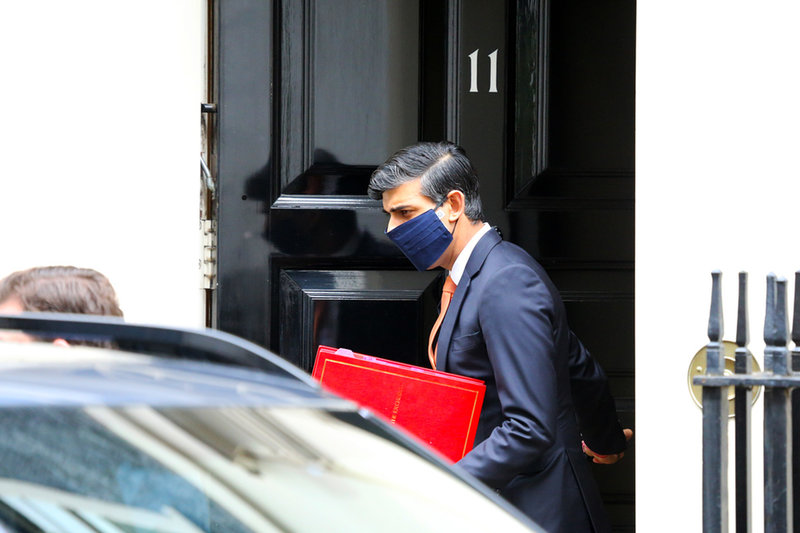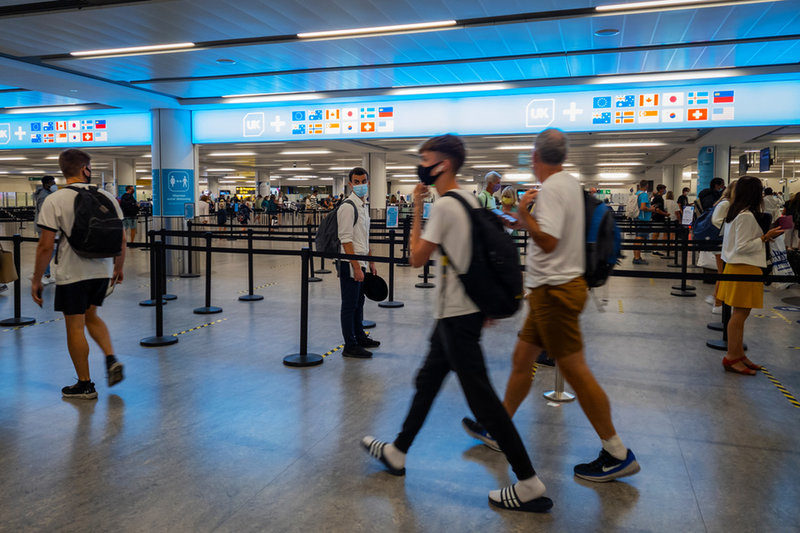Retail
The end of VAT-free shopping: an airport retail disaster?
The UK Government’s decision to rescind the VAT Retail Export Scheme has sent shockwaves through an aviation industry already on its knees because of Covid-19. As the day of its entry approaches, Ilaria Grasso Macola finds out why the decision has left airport retailers up in arms.
Image: copyright
According to a 2008 study by the University of Westminster, commercial revenues account for half of all airports’ revenues, with retail as the most significant source of income.
Since 2008, the reliance of airports on commercial revenue has considerably increased. As highlighted by an Airports Council International (ACI) report, global retail contributed to 28% of non-aeronautical income in 2016, going up to 56% in the Middle East.
A review of commercial revenues at UK-based London Heathrow also showed that revenues from retail amounted to £422m in 2015, highlighting how the airport’s direct relationship with luxury brands drove up sales and their economic margin.
In the last few months, airports worldwide have put retail at the centre of their post-Covid-19 recovery plans. Experts believe that tax-free shopping will help the industry get back on its feet, especially in the UK.
When the UK Government announced its intention to scrap the VAT Retail Export Scheme on 31 December 2020, industry stakeholders called the move “a hammer blow to the industry.” As the end of VAT-free shopping approaches, what will the impact be on airports?
A post-Brexit duty-free system
On 11 September, the UK Treasury proposed to rescind the VAT Retail Export Scheme (VAT RES), which allows international visitors to reclaim VAT on goods that are purchased but not used in the country.
The scheme — which will end at the same time the UK completes its transition period post-Brexit – was cancelled because of concerns that savings weren’t passed to consumers, as well as inconsistencies with international law.
As estimated by Her Majesty’s Revenues and Customs, £150m of VAT is not charged because of tax-free airside sales. The concession — which if extended to the EU post-Brexit would be too burdensome for the UK’s finances, according to the government – is also said to be applied inconsistently by aviation operators.
To replace the VAT RES, the UK Government has decided to extend duty free to EU countries, allowing passengers to buy duty-free alcohol and tobacco in British ports, airports and international train stations.
These tax changes mean people travelling to the EU can buy beers, wines and spirits duty free for the first time in over 20 years
Rescinding VAT – which prevents international travellers from purchasing electronics and clothing (among other things) at duty-free prices – is said to favour smaller airports, which can’t currently offer duty-free prices on journeys to European countries.
“While protecting public health remains our priority, we recognise the challenging times facing the aviation sector, which is why we have acted quickly to provide the industry with an unprecedented package of support, including action on airport slots, loans, and tax deferrals and financial support for employees,” comments an HM Treasury spokesperson.
“These tax changes mean people travelling to the EU can buy beers, wines and spirits duty free for the first time in over 20 years — a huge boost to British airports.”
The decision followed an extensive consultation, which ran from March to May 2020 and gathered responses from a variety of industry stakeholders.

UK Chancellor of the Exchequer Rishi Sunak. Credit: T Salci / Shutterstock.com
Putting UK retailers at a disadvantage
With VAT-free shopping accounting for three quarters of retail concession revenues at airports, stakeholders are worried the move could put UK airports and airport retailers at a disadvantage and lead to thousands of job cuts.
According to a letter sent to the UK Chancellor of the Exchequer Rishi Sunak by retail and aviation stakeholders, ending VAT-free shopping for international passengers will put 70,000 jobs at risk.
“As every international journey involves another origin or destination point outside of the UK, the removal of tax-free sales will simply lead to unfavourable economic outcomes not only for the sector but the UK as a whole,” commented Tax Free World Association president Alain Maingreaud.
“At a time when it has never been more important to protect revenue and jobs, this decision damages UK-based brands and their ability to sell to international travellers in the UK and beyond.”
The removal of tax-free sales will simply lead to unfavourable economic outcomes
The UK Travel Retail Forum (UKTRF), an umbrella body representing the travel retail business sector, believes that the move will discourage tourists from visiting the country, giving the EU an economic advantage post-Brexit.
“It may well be the best gift the UK could have given the EU, as well as a massive blow for UK plc, and we are dismayed at the lack of industry consultation before this decision was reached,” UKTRF chair Francois Bourienne comments.
“While we are grateful for the government’s move to extend duty-free sales to passengers travelling from the UK to the EU, we are extremely concerned that ministers have not fully appreciated the impact this decision will have on the wider travel retail and aviation sectors,” he adds. “We urge the government to immediately review its decision and act swiftly to ensure jobs, businesses and Britain’s place as a premier travel hub are not lost.”
European Travel Retail Confederation president Nigel Keal expressed concern that it would dismantle the whole industry framework, as only excisable products will be subjected to duty free.
According to Keal, categories such a cosmetics, electronics, and luxury good will be the ones to suffer most, once the law comes into effect.
“The majority of products we sell are not excisable, and through the relief provided on VAT for those sales, we have seen the establishment of a global industry,” he said on 16 September. “Removing this essential building block could cause irreparable harm to our industry, especially if replicated in other countries.”

Passengers walking through London Gatwick airport in August 2020. Credit: Yau Ming Low / Shutterstock.com
Dealing a hard blow to post-Covid aviation
The devastating economic effects of the Covid-19 pandemic on aviation are by now well-known. An ACI analysis predicts that due to the pandemic the global aviation industry will see a 59.6% reduction in passenger volume in 2020, with a consequent $104.5bn loss of revenue.
Amidst uncertainty and with a second UK lockdown ongoing, airports are slowly trying to recover, relying extensively on retail and non-aeronautical revenues.
As explained by ACI VP economics Patrick Lucas, many airports rely on commercial revenues to cover operating costs and keep passengers’ airport charges low.
“For many hub airports across the globe, non-aeronautical revenues make up at least 40% of total revenues,” he says. “For some international hubs with many international transfer passengers, commercial revenues are in excess of 50% of revenues.”
Lucas believes that the economic downturn will be substantial. Citing an initial impact assessment made by aviation consultancy York Aviation, he says that the removal of the statutory concession would result in a £2.1bn loss in the UK’s gross domestic product and potentially cost nearly 19,400 jobs.
For many hub airports across the globe, non-aeronautical revenues make up at least 40% of total revenues
Whilst struggling to get back on their feet, airports such as London Gatwick will bear the costs of the decision.
“Tax-free sales to international passengers contribute a significant proportion of Gatwick’s total income and supports many local jobs,” said a London Gatwick spokesperson. “Withdrawing this support will cause economic harm at a time when we are struggling through the greatest crisis the aviation industry has faced.”
“Although London City Airport is less exposed, with fewer non-EU passengers and a comparatively smaller commercial offer, retail is an important part of any airport’s proposition,” added another from London City. “Diminishing that at a time when airports are trying to survive this crisis and battling to attract passengers is an unnecessary blow and will give European competitors an avoidable advantage.”
Despite the serious consequences the move might have in the UK, Lucas doesn’t believe it will create a ripple effect in other countries. “The UK is in a unique situation in relation to the policies and economic ramifications around Brexit,” he comments. “Thus, the ripple effect in other jurisdictions is unlikely.”
“ACI World is urging governments to facilitate and stimulate commerce by allowing arrivals duty and tax-free shopping as part of a recovery package. Many governments recognise the interconnectedness that aviation has with tourism, the travel retail space and the broader local economies.”